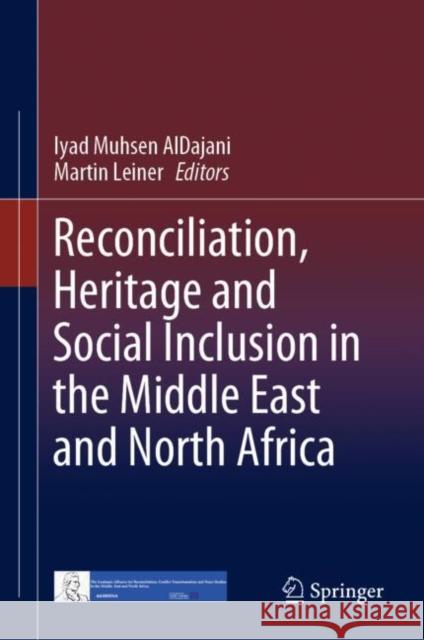Reconciliation, Heritage and Social Inclusion in the Middle East and North Africa » książka
Reconciliation, Heritage and Social Inclusion in the Middle East and North Africa
ISBN-13: 9783031087127 / Angielski / Twarda / 2022 / 481 str.
Reconciliation, Heritage and Social Inclusion in the Middle East and North Africa
ISBN-13: 9783031087127 / Angielski / Twarda / 2022 / 481 str.
(netto: 499,55 VAT: 5%)
Najniższa cena z 30 dni: 501,19
ok. 22 dni roboczych.
Darmowa dostawa!
This book, sponsored by the Academic Alliance for Reconciliation Studies in the Middle East and North Africa (AARMENA), focuses on peacebuilding, conflict transformation, and shifts toward approaching the reconciliation process as an inter-, trans- and multidisciplinary field. The research presented in the series focuses on the Middle East and North Africa, highlighting contributions by practitioners and scholars alike.This volume showcases research on Heritage, Reconciliation, and Social Inclusion in the Middle East and North Africa. It reflects various inter-, trans- and multidisciplinary approaches applied both theoretically and practically, and explores conflict transformation and transitional shifts towards peacebuilding and reconciliation in the MENA (Middle East and North Africa) region.The content is divided into five sections, the first of which examines the importance ofreconciliation, peacebuilding, and social inclusionin contributions by experts in the field such as Martin Leiner, Wolfgang Dietrich, Mohammad Abu Nimer, Mohmmad Alshraideh and Iyad Aldajani. The second and third section exploredigital humanitiesand theresearch sciencesrespectively, while the fourth turns topractices of heritage and reconciliation. The fifth section presents case studies on practices, conducted by expert researchers forheritage, reconciliation, and social inclusionin higher education.
This book, sponsored by the Academic Alliance for Reconciliation Studies in the Middle East and North Africa (AARMENA), focuses on peacebuilding, conflict transformation, and shifts toward approaching the reconciliation process as an inter-, trans- and multidisciplinary field. The research presented in the series focuses on the Middle East and North Africa, highlighting contributions by practitioners and scholars alike.This volume showcases research on Heritage, Reconciliation, and Social Inclusion in the Middle East and North Africa. It reflects various inter-, trans- and multidisciplinary approaches applied both theoretically and practically, and explores conflict transformation and transitional shifts towards peacebuilding and reconciliation in the MENA (Middle East and North Africa) region.The content is divided into five sections, the first of which examines the importance of reconciliation, peacebuilding, and social inclusion in contributions by experts in the field such as Martin Leiner, Wolfgang Dietrich, Mohammad Abu Nimer, Mohmmad Alshraideh and Iyad Aldajani. The second and third section explore digital humanities and the research sciences respectively, while the fourth turns to practices of heritage and reconciliation. The fifth section presents case studies on practices, conducted by expert researchers for heritage, reconciliation, and social inclusion in higher education.











